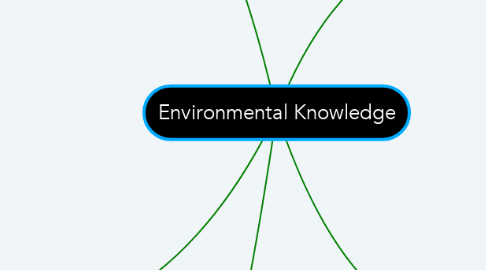
1. Environmental Justice
1.1. Inequality of the environmental movement historically
1.2. How to make policies serve the communities they effect
1.3. Environmental racism
1.4. NIMBYism
1.5. Representation of indigenous knowledge
1.6. Ecofeminism
1.7. Environmental Justice Movement
1.8. Environmental activism
1.9. Exclusion of people of color from the outdoors
1.10. How National Parks have disenfranchised indigenous peoples
2. Environmental Studies
2.1. Methods for effective research
2.1.1. Engaging the community you are researching in the research
2.1.1.1. See if the research is beneficial to the community
2.1.2. How to sample
2.1.3. How to reserch
2.2. Intersection between religion and the environment
2.2.1. Importance of religion in combating environmental issues
2.3. Intersection between ethics and the environment
2.3.1. Importance of ethics in dealing with the reality of climate change
2.4. The Commons
2.4.1. Land
2.4.2. Air
2.4.3. Water
2.4.4. Gift economy
2.4.5. How to make an effective management scheme for a common pool resource
2.5. Acceptance of other forms of knowledge, other ways of knowing
2.6. Importance of being outdoors
2.6.1. Nature immerson
2.7. Permaculture
2.7.1. Urban agriculture
2.7.1.1. How to effectively plant, harvest, prepare food
2.8. Slow growth
2.9. Sustainability
2.10. Deep Ecology
2.11. The role of capitalism in the collapse of the environment
3. Environmental Issues/Major Topic Areas
3.1. Climate Change
3.1.1. Ocean acidification and expansion
3.1.2. Desertification
3.1.2.1. Climate Migration
3.1.2.1.1. Deceased ability to produce food
3.1.3. Feedback loops
3.1.4. Role of climate change in future and current global conflict
3.2. Energy
3.2.1. Fossil Fuels
3.2.2. Renewables
3.2.2.1. How to store energy?
3.3. Waste
3.4. Transportation
3.4.1. Sustainable Cities
3.5. Deforestation
3.6. Pollution
3.7. Extinction
3.8. Overharvesting of natural resources
3.9. Agriculture
3.9.1. Emissions
3.9.2. Air and water pollution
4. Environmental Law and Policy
4.1. The legislative process
4.2. How to write a policy brief
4.3. National regulations
4.3.1. Endangered Species Act
4.3.2. NEPA
4.3.3. RCRA
4.4. State regulations
4.4.1. CEQA
4.5. What makes good policy
4.5.1. Equitability
4.5.2. Systems Thinking
4.5.3. Engaging stakeholders
4.6. The rights of nature movement
4.7. Global Environmental Policy
4.8. Mitigation and adaptation
4.8.1. Carbon credits
4.9. Renewable Energy
5. Environmental Science
5.1. Ecology
5.1.1. Ecological Restoration
5.1.2. Soil sampling
5.1.3. Running an experiment
5.2. Air and Water
5.2.1. Environmental Chemisty
5.2.2. Water sampling
5.2.3. Science behind climate change
5.3. Geographic Information Systems
5.3.1. How to make effective maps
5.3.2. ArcGIS
5.4. Quantitative Skills
5.4.1. Statistics for environmental research
